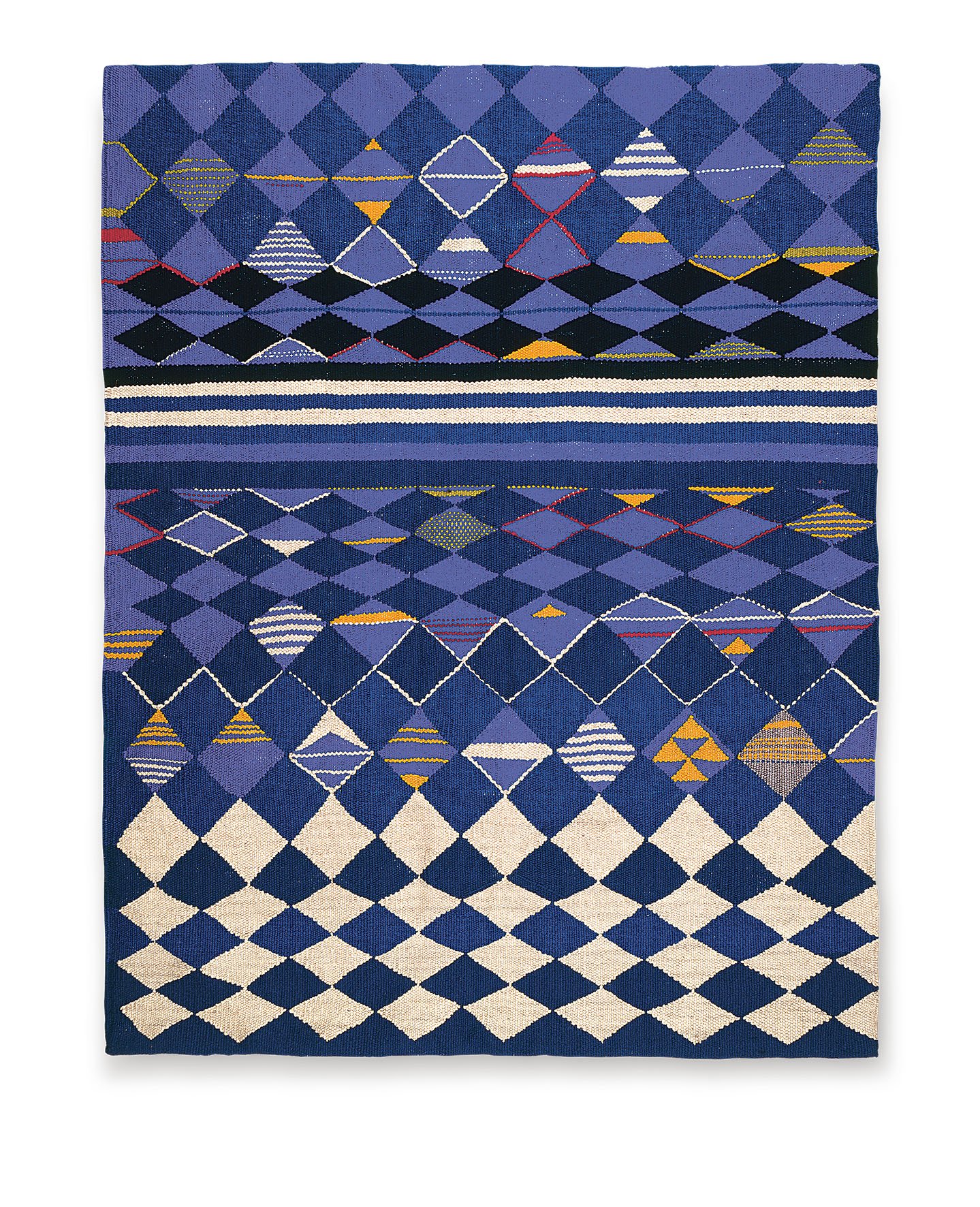
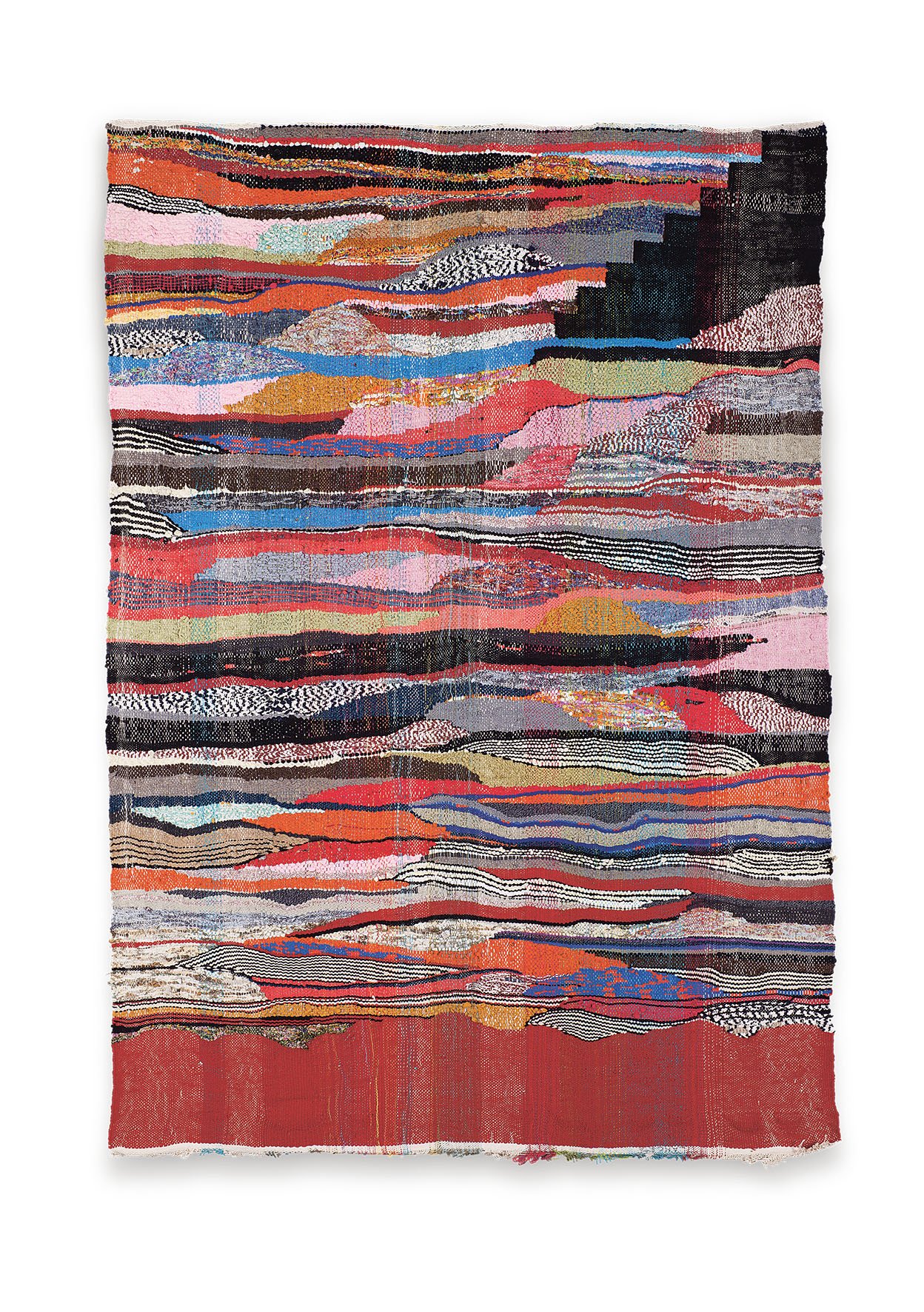
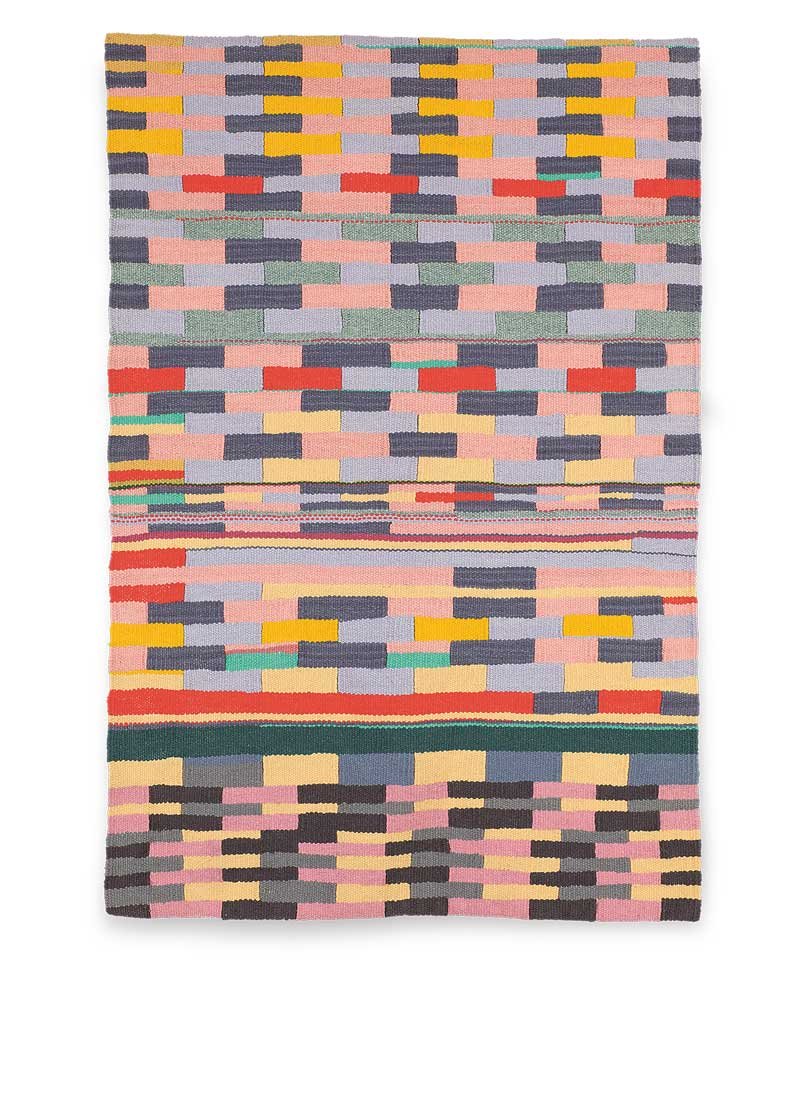
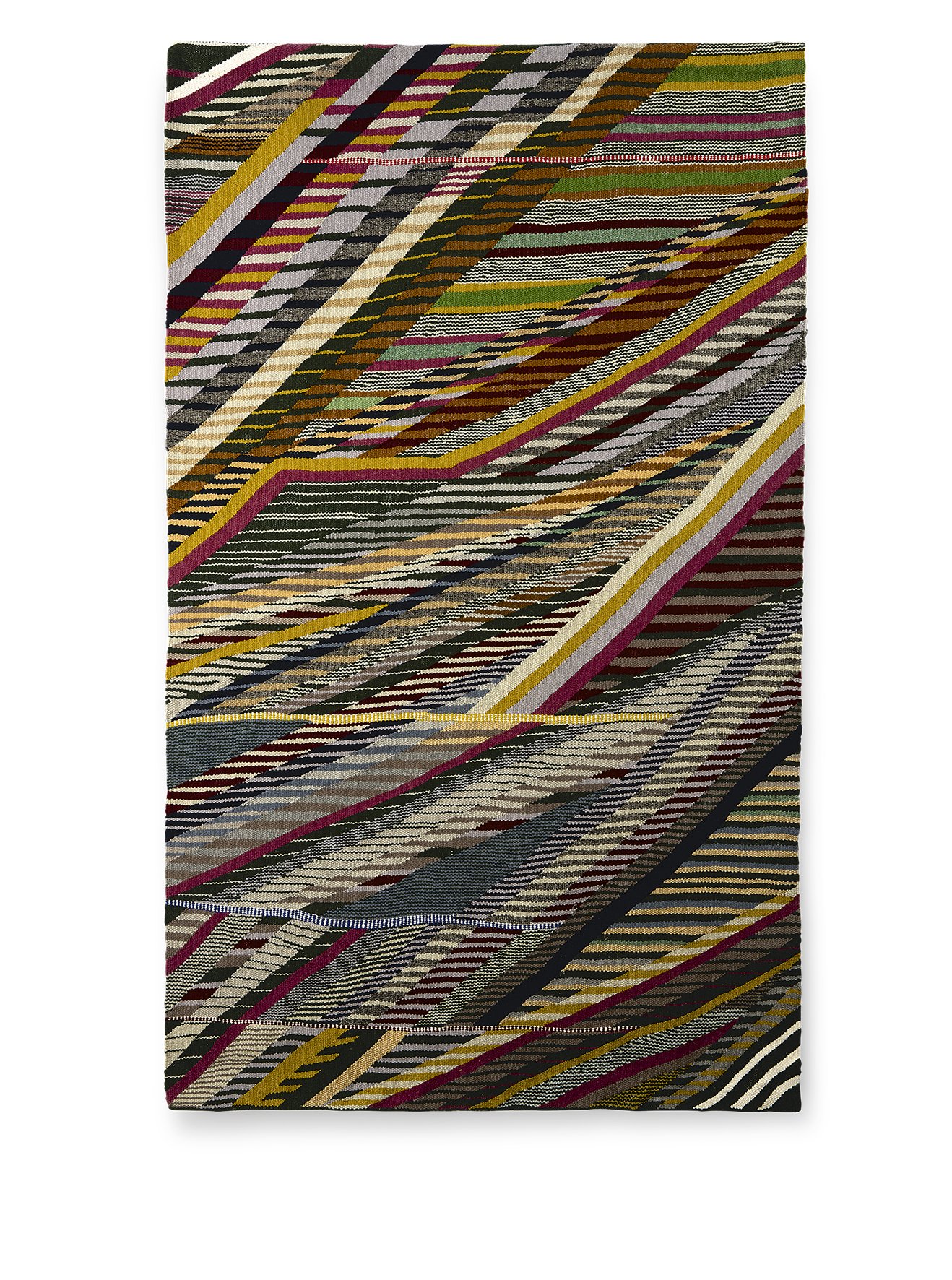
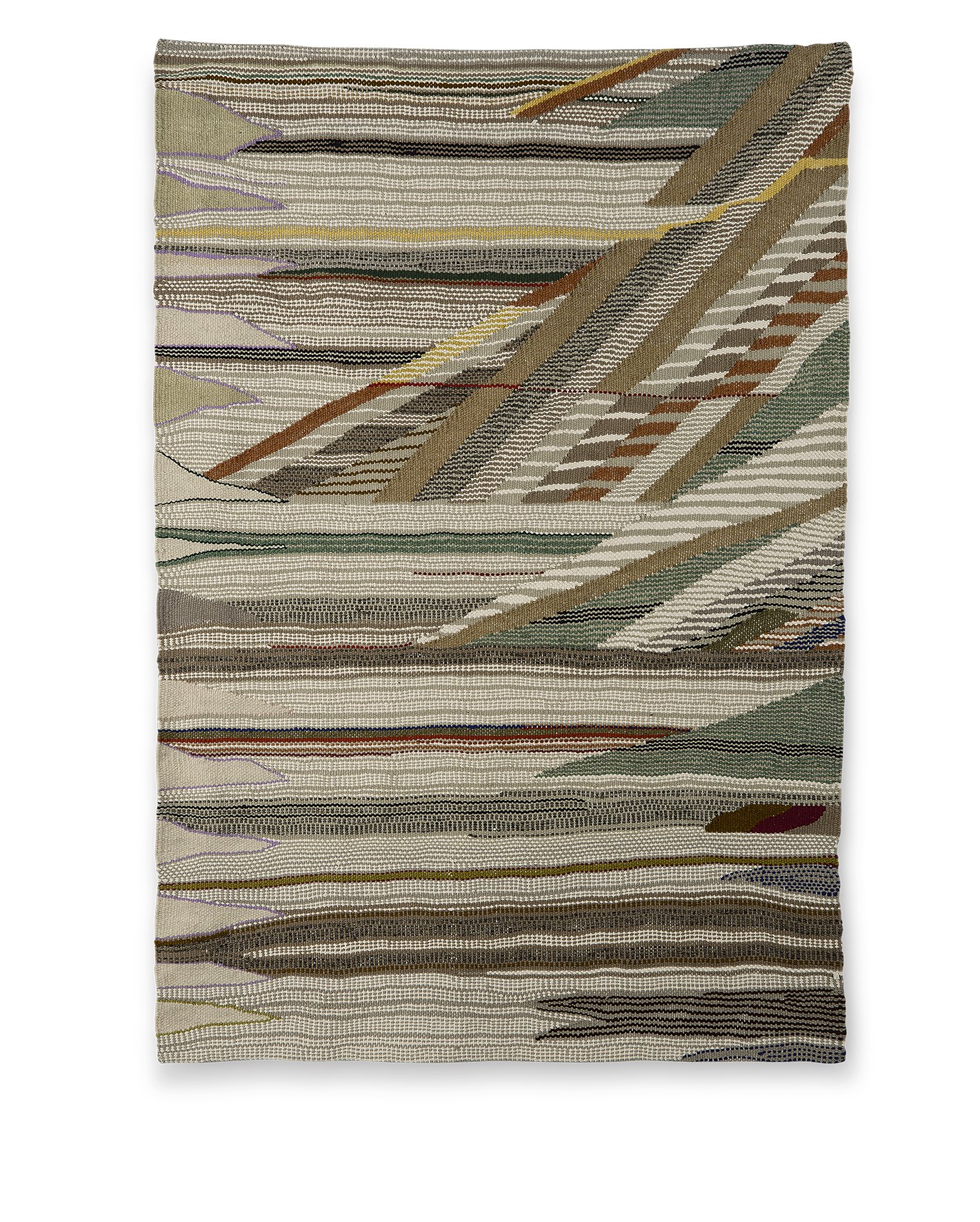
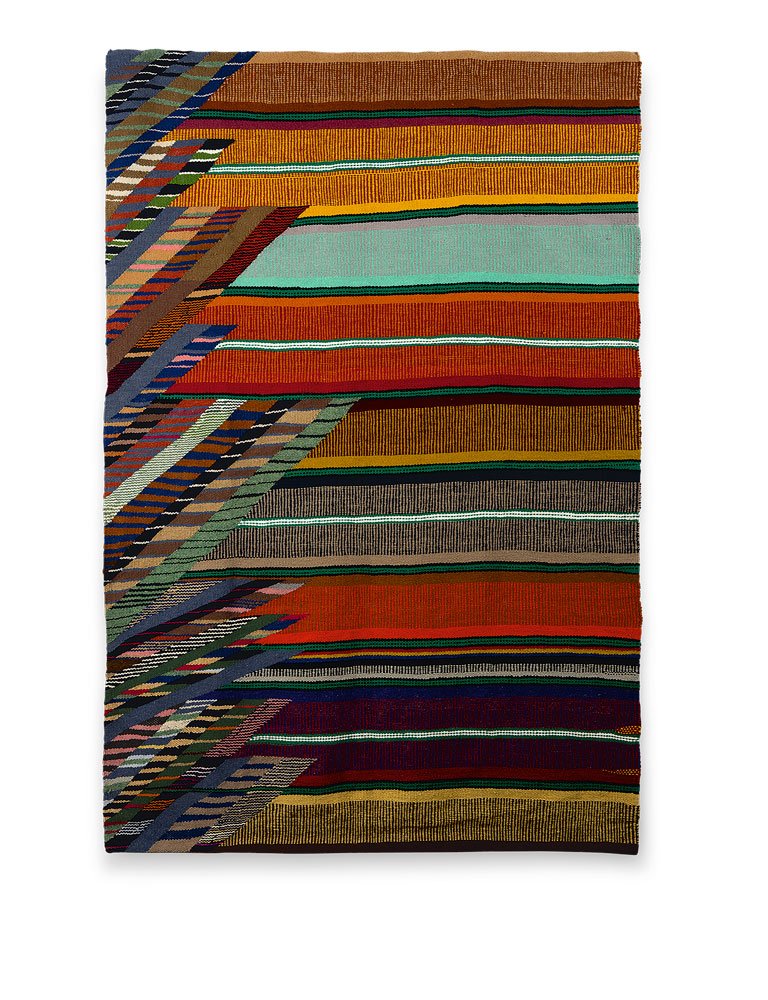
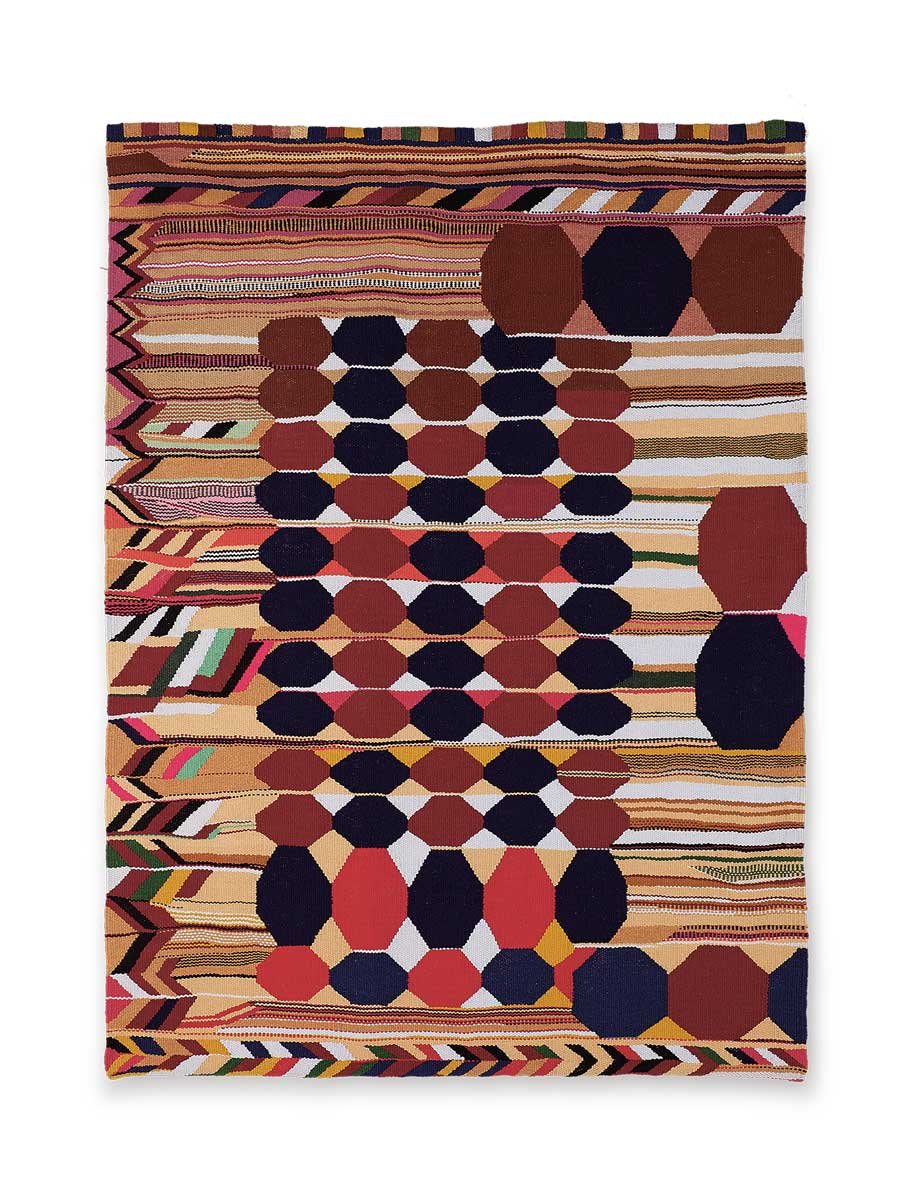
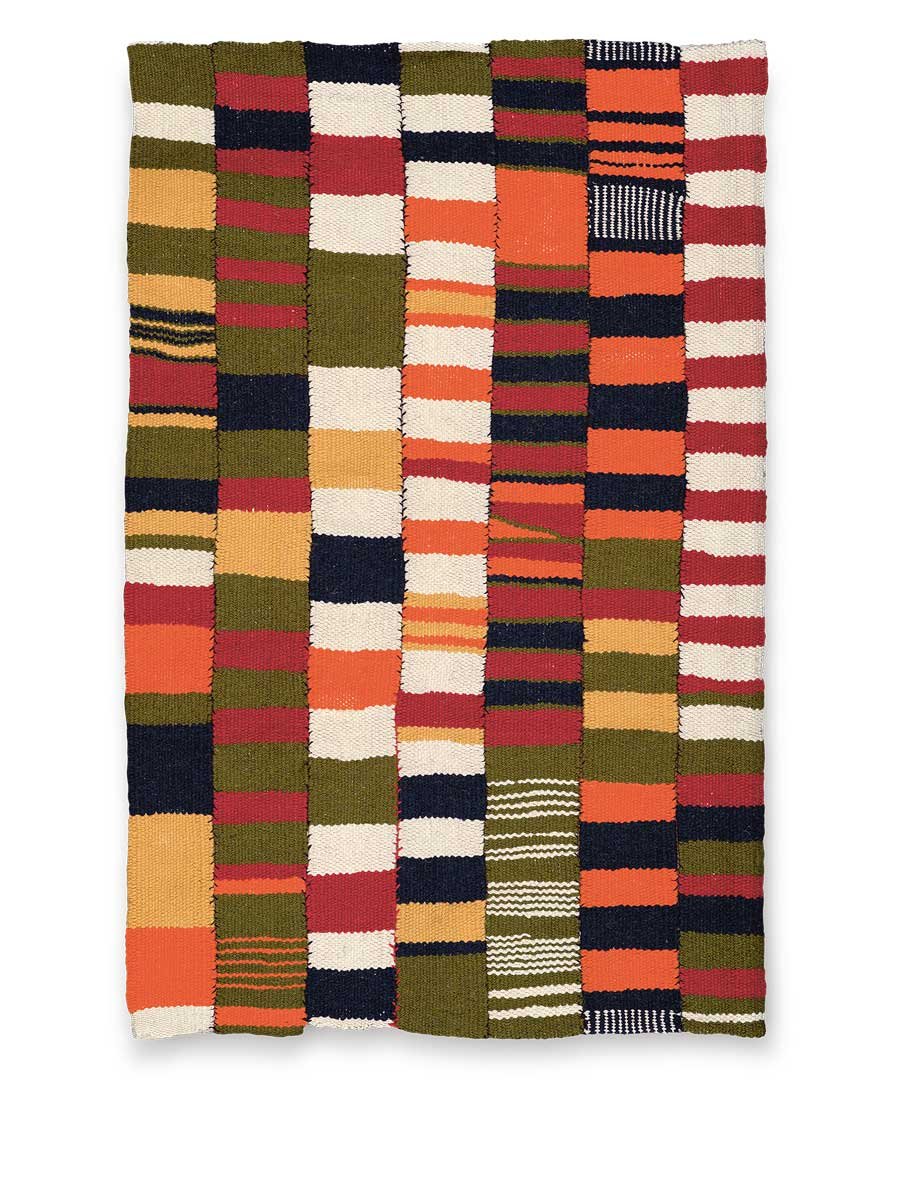
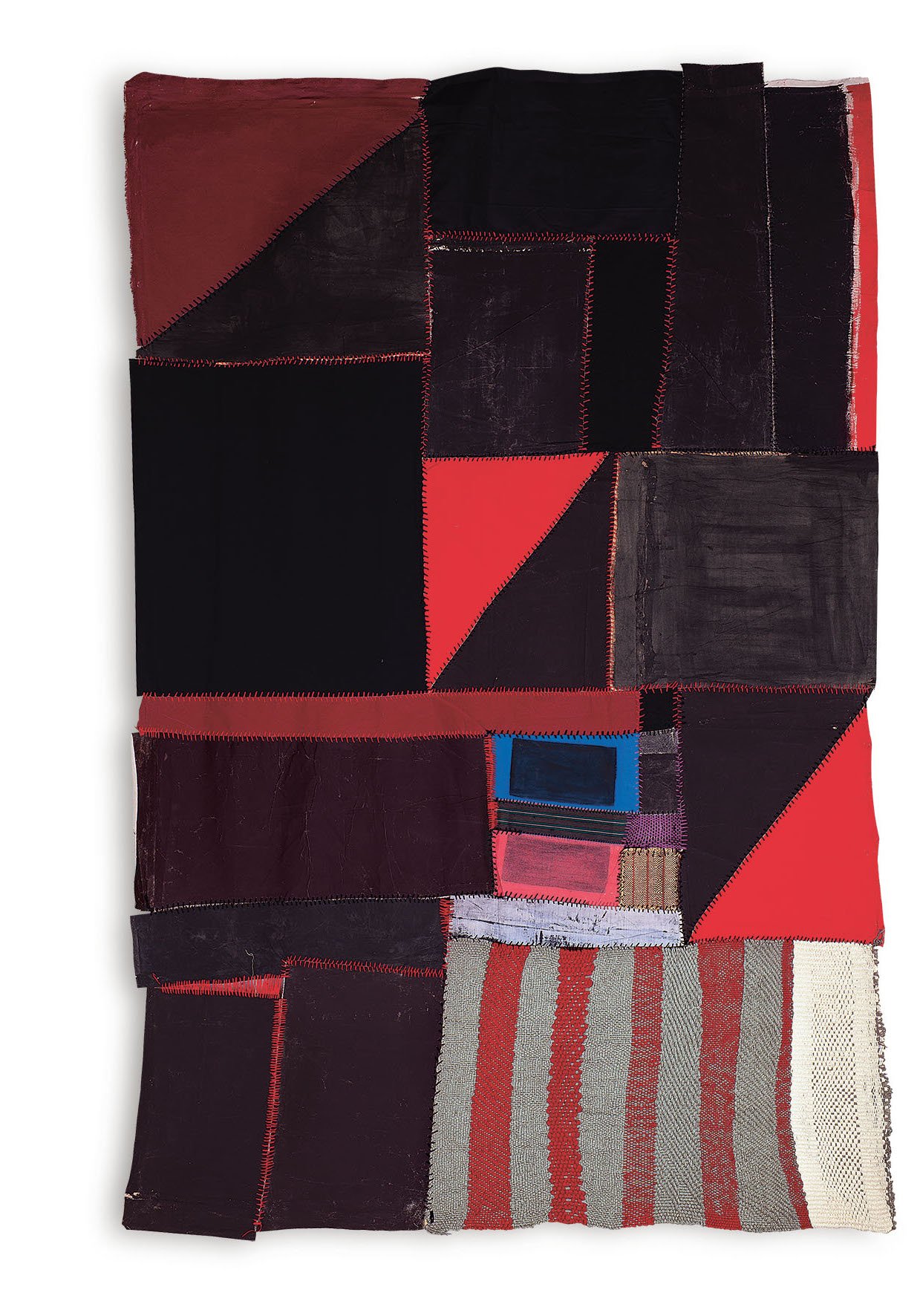
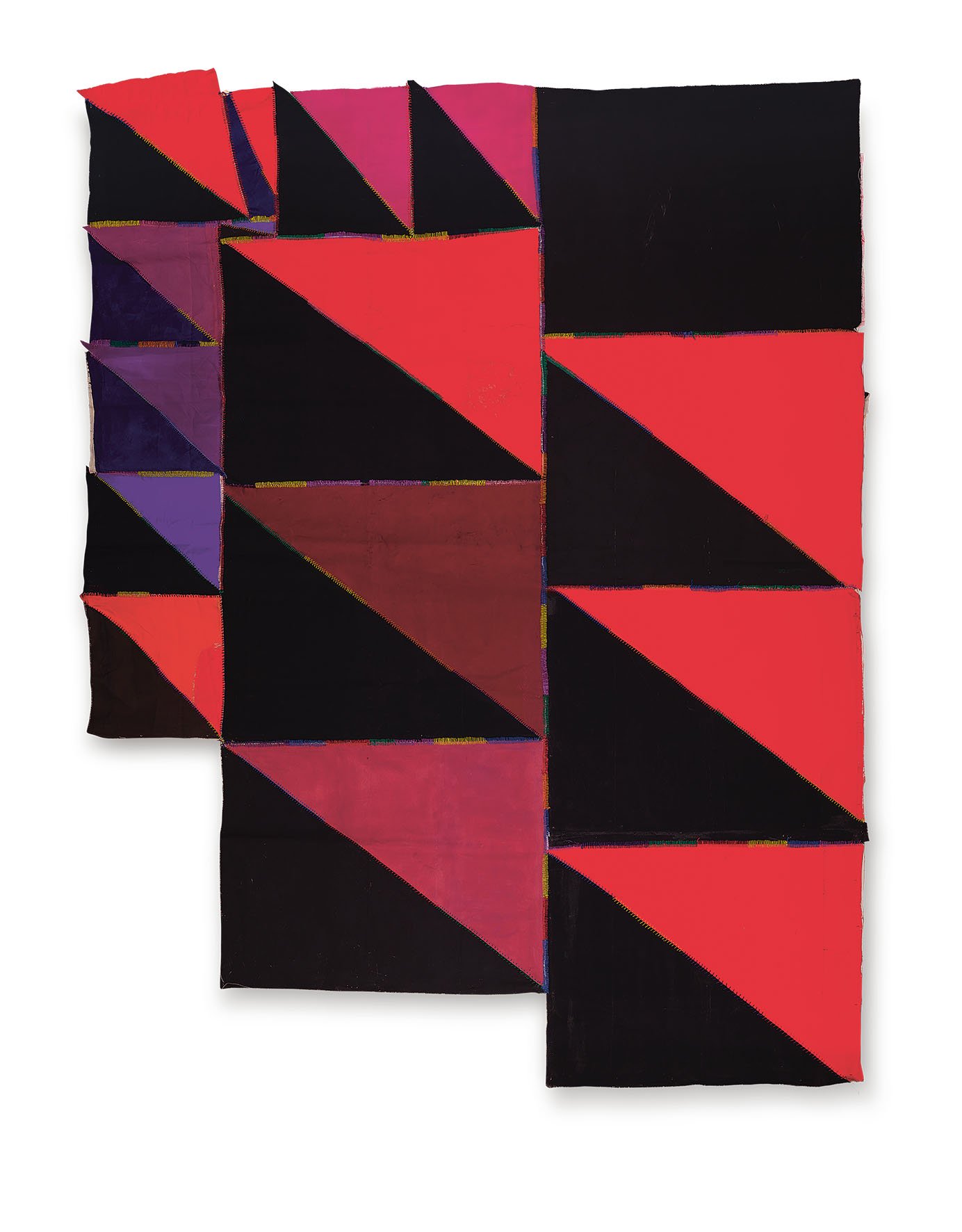
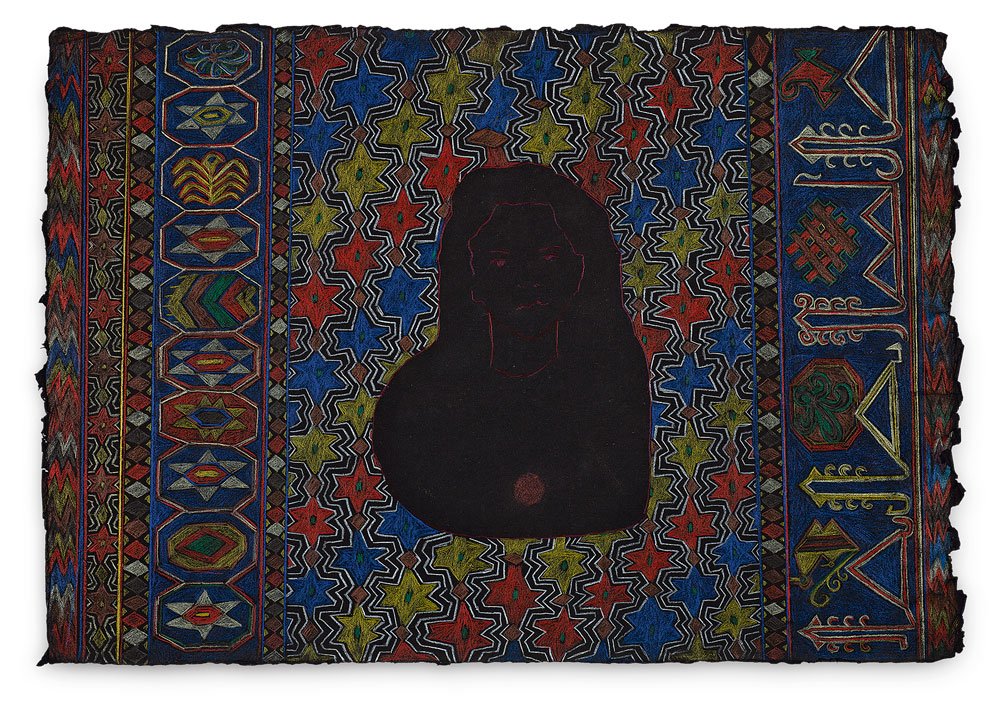
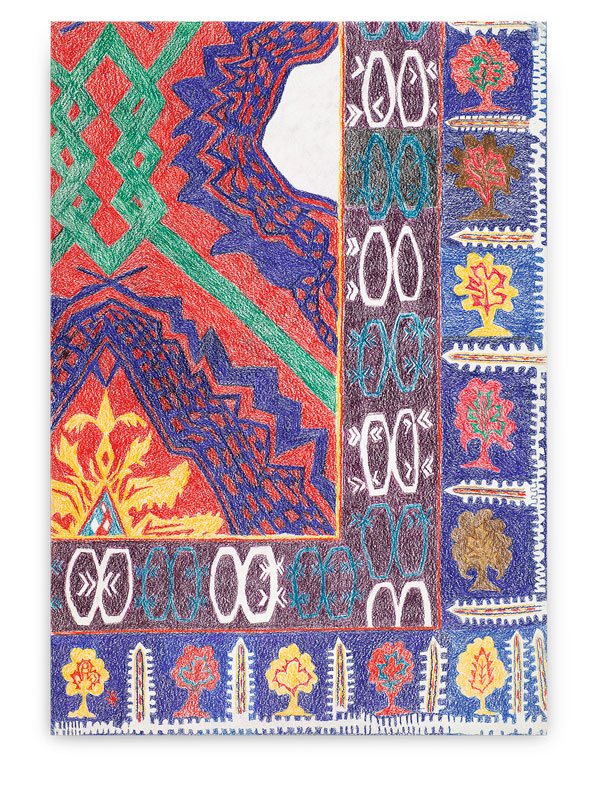
EXHIBITIONS
TERESA LANCETA
B. 1951, BARCELONA, SPAIN
Over her five-decades long career, Teresa Lanceta has expanded the art of textile beyond practical enactments of materiality and towards a mode of epistemological inquiry. The patterns and compositions seen across her work are intrinsically founded upon the physical structure of the woven, sewn, and fiber form and the idea of technique as a universal code. As in her weavings, the repetitive interlocking of weft and warp constitutes the fundamental “open source” of language, generating unique, unscripted conversations of thread and color with each successive weave.
Lanceta’s methodology emerges from a deeply reciprocal engagement of artistic traditions and sustained dialogues across geographies, cultures, and socioeconomic contexts; most significantly, her time living in the Raval neighborhood of Barcelona and her travels to the Middle Atlas region of Morocco. Across her career, which encompasses “co-authorships” with fellow artists and work with drawing, painting, and writing, Lanceta embraces the communicative potential of textile and its capacity to channel and transform global histories and systems of knowledge.
Teresa Lanceta was born in Barcelona in 1951 and attended university there amidst the fervent and tumultuous landscape of the 1968 global protests and student-led political organizing. By the early 1970s, Lanceta was living and working within the Gitano population of Barcelona’s Raval district, forging connections with the women of the community. It was during this time that Lanceta experienced a transformative encounter with a skein of cotton, an initiation that ultimately activated a series of material and conceptual concerns around weaving as a process of codes. For her weaving is a techné—"technical" knowledge dependent on a specific geographical, cultural and human context, be it, in her case, Barcelona’s Raval neighborhood, and the Middle Atlas in Morocco. Both of these places fed her fascination for women’s work and the non-verbal communication of stories and emotional bonds.
1982 marked Lanceta’s first interaction with the Dutch anthropologist Bert Flint and his immersive scholarship on Afro-Berber arts. Their travels through the Middle and High Atlas brought her into association with the region’s women weavers and their ancestral techniques. In the mid-80s, Lanceta initiated a project based on the “source” fabrics of the Moroccan craftswoman, creating tapestries each guided by a traditional Middle Atlas weaving. This corpus of work was shown across three exhibitions, which presented Lanceta’s pieces alongside their corresponding original: La alfombra roja at the Museu Tèxtil i d'Indumentària, Barcelona, in 1989, Tejidos marroquíes at the Museo Nacional Centro de Arte Reina Sofía, Madrid, and Villa des Arts, Rabat, in 2000, and Adiós al rombo at La Casa Encendida, Madrid, and Azkuna Zentroa, Bilbao, in 2016 and the 2017 Venice Biennial. Each show reflected the unique dimensions of Lanceta’s practice at the time of their exhibition, offering profound meditation on material inheritance and the transmission of visual codes across place and time.
Teresa Lanceta received a BA in History and a PhD in Art History, and has lived in Barcelona, Alicante, Madrid, Seville, and Marrakech. She currently lives and works in Alicante, Spain. She has been included in the Biennials of Venice (2017), São Paulo (2013, 2014), and Cairo (2009). Her work was most recently the subject of Teresa Lanceta: Weaving as Open Source at the Museu d'Art Contemporani de Barcelona (2022-23). This comprehensive survey traced Lanceta’s artistic trajectory from the 1970s to present day, featuring a selection of tapestries, weavings, fabrics, drawings, photographs, and video work. In the US she is currently included in the exhibition Woven Histories: Textiles and Modern Abstraction at Los Angeles County Museum of Art (traveling to the National Gallery of Art, Washington, the National Gallery of Canada, Ottawa, and The Museum of Modern Art, New York), curated by Lynne Cooke. Her work can be found in numerous public collections including Museo Reina Sofía, Madrid; Pérez Art Museum, Miami, FL; MACBA Barcelona; Institut Valencià d'Art Modern; Museo de Arte Contemporàneo de Alicante and Museo Provincial de Teruel. Forthcoming solo exhibitions will be presented at Museo Patio Herreriano, Valladolid (2023), and the The Meadows Museum in Dallas, TX (February 2024).
In 2023, Lanceta was awarded the Premio Nacional de Artes Plásticas, among Spain’s most prestigious cultural honors, in recognition of her meritorious and vitalizing work in the plastic arts.
C.V. (PDF)
